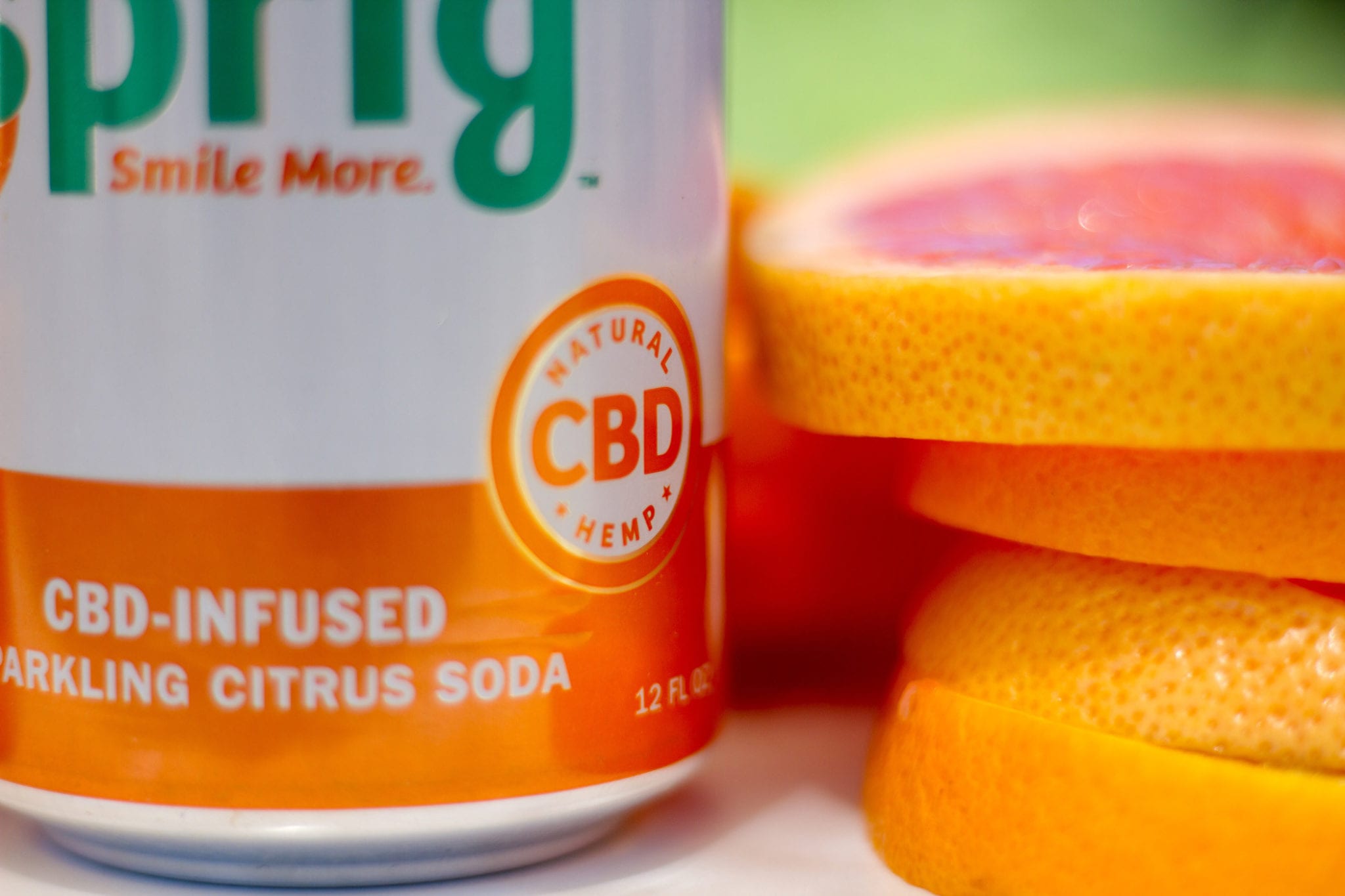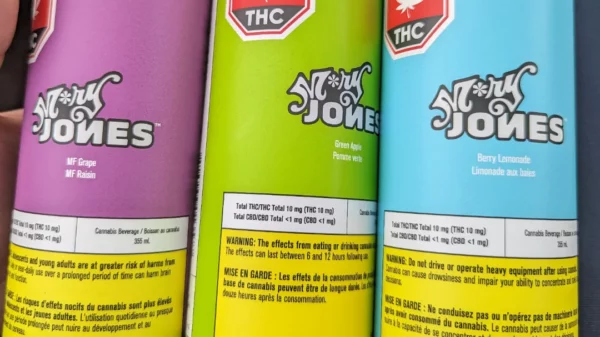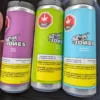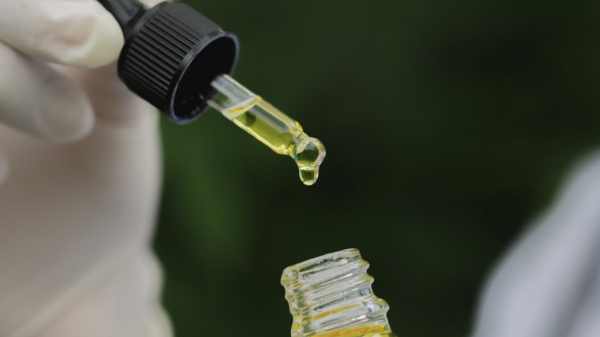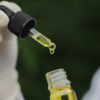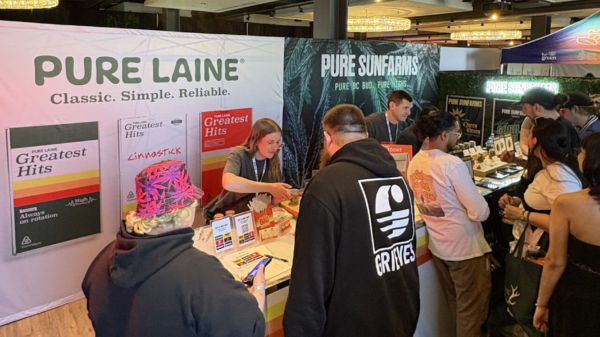From pet snacks to face cream to ice cream, CBD catapulted in popularity so fast last year that companies have been trying any way they can to capture a piece of what’s projected to become a multi-billion dollar market.
With a torrent of CBD products hitting shelves of major retailers like Walmart and Kroger in the first half of 2019, cannabis research firm Brightfield Group projected sales of the widely praised wellness extract will reach close to US$24 billion by 2023.

Deposit photos
But the U.S. Food and Drug Administration threw a wet blanket on the CBD hype later last year when it warned companies it remains illegal to market CBD in food, drinks and supplements.
Former FDA commissioner Scott Gottlieb said it could take years to come up with regulations for those CBD-infused products without Congress intervening first.
Fast forward to last week, and U.S. House lawmakers took the first step to do just that.
Members from both sides of the political binary introduced a bill that would order the FDA to treat CBD as a dietary supplement, or food additive, and open up the market.
The new legislation would remove the regulatory uncertainty that has hindered growth of the hemp-derived CBD industry.
Shares of CBD companies have jumped since the bill was first tabled Jan. 13.
Read more: U.S. House introduces to allow sale of CBD-infused food and drink
If CBD eventually gets treated the same way as vitamin C, Brightfield says there are more than 1,000 CBD brands in the U.S. ready to pounce on the opportunity to legally sell a wider range of products.
But not all companies are positioned equally. Some CBD sellers already enjoy massive distribution footprints, which puts them in a better position to capture a large slice of the CBD market if and when it opens up.
Here’s a look at four of those companies.
The Alkaline Water Company
Not only is The Alkaline Water Company Inc. (TSXV: WTER and NASDAQ: WTER) America’s fastest growing alkaline water brand, it now has megastars Mark Wahlberg and Sean ‘Diddy’ Combs backing its wide range of new CBD products.
The Arizona-based company joined forces with Wahlberg, Diddy and celebrity trainer Jillian Michaels with its September acquisition of AQUAhydrate, a premium bottled water company based in Los Angeles.
Wahlberg said the brands align well in creating a bold new health and wellness company that will support exciting innovations in flavored, sparkling and CBD-infused products. The big name backers boast 74 million followers across multiple social media platforms to promote the newly minted lifestyle brand.

Photo courtesy of The Alkaline Water Company
Alkaline Water will leverage its new star power to help sell its hemp-derived CBD-flavoured water, tinctures, capsules and powder packs.
Additionally, the company teamed up with Centuria Foods — the only legal CBD producer prior to the U.S. 2018 Farm Bill — to supply it with high quality, organic cannibidiol. That extract will also be infused with a variety of new CBD topical products, including lotions, salves, balms, essential oils, and bath salts.
CEO Richard Wright said when the CBD industry gets the green light from regulators, his company’s rich retail distribution network gives it a unique opportunity to capture the exploding wellness trend.
In 2019, its flagship Alkaline88 product was added to 1,100 convenience store shelves and reaches 47,500 retail locations in all 50 states. The company’s distribution spans more than 150,000 stores in total, including 9 of the top 10 largest retailers like Whole Foods, Kroger and Walmart.
“The acquisition of AQUAhydrate is an unprecedented opportunity that allows The Alkaline Water Company to cement itself as a leader in various multi-billion dollar segments which include premium water, functional & wellness, and the CBD market,” said Wright. #Alkaline88 $WTER https://t.co/UflDSqqzC8
— Alkaline88® (@Alkaline88) September 10, 2019
Charlotte’s Web Holdings Inc.
Charlotte’s Web (TSX: CWEB and OTCQX: CWBHF) is the leading U.S. CBD brand by market share, and the company’s stock jumped as

Photo courtesy of Charlotte’s Web
much as 32 per cent since the new House bill was introduced.
Because the Colorado-based firm only sells hemp-derived CBD products, it’s more nimble than U.S. multi-state cannabis operators that cannot legally move THC products across state lines.
Charlotte’s Web sells its CBD tinctures, topicals, gummies and canine products in more than 9,000 stores across 45 states, including inside 1,500 stores owned by America’s largest grocer Kroger.
The vertically integrated company uses proprietary hemp genetics, which it planted on 862 acres last year. The full spectrum hemp is then taken for in-house production, which now includes a 137,000 square foot, GMP-certified extraction and research and development facility in Colorado.
The CBD producer is on pace to report almost US$100 million in total net revenue for 2019. But that comes well short of the company’s previously issued revenue guidance of up to US$170 million.
CEO Deanie Elsner said last August the higher estimate would have been met if the FDA had introduced CBD-friendly regulations by early fall.
Curaleaf Holdings Inc.
Curaleaf (CSE: CURA and OTCQX: CURLF), the most valuable U.S. cannabis company by market share, also sells a variety of CBD products through its Curaleaf Hemp brand.

Photo courtesy of Curaleaf
The Massachusetts-based company boasts the largest weed retail footprint in the U.S. with its July 2019 acquisition of Chicago-based Grassroots for US$875 million.
The deal is expected to close this spring, which will increase its retail footprint to 131 stores in 19 states.
Ironically, Curaleaf can freely sell its THC products in the states that have legalized some form of pot, but is still waiting for regulatory clarity to expand CBD sales to its retail locations.
The company currently sells its CBD products online, which include infused topicals such as tinctures, lotions and lip balms.
Curaleaf peeled back sales of CBD edibles, vapes and its Bido pet brand after it was issued an FDA warning letter for using unsubstantiated claims when marketing its products.
The regulatory blunder also led to retail giant CVS pulling Curaleaf’s CBD products from its shelves until CBD laws ease.
Bad news aside, Curaleaf is well-funded. It recently closed a US$300 million loan, which could be used in the future to expand CBD operations inside its massive retail network.
Green Growth Brands Inc.
Green Growth Brands (CSE: GGB) is a cannabis company with the largest network of CBD shops in malls across the U.S.
Although the company cancelled its US$310 acquisition deal of the popular Moxie weed brand last month, it said cutting ties will allow it to focus more on its expanding CBD enterprise.

Seventh Sense CBD Shop at the Fayette Mall in Lexington, Kentucky (CNW Group/Green Growth Brands)
At the end of last quarter, Green Growth sold its Seventh Sense personal care CBD brand in almost 200 mall kiosks across 34 states.
The company also has distribution and white label deals with major retailers like Abercrombie & Fitch, DSW and American Eagle, as it targets a more youthful market.
The Ohio-based retailer already sells 100 different CBD products and it will expand on those offerings when it’s federally permitted to do so.
Green Growth also hired Victoria Secret’s former chief marketing officer Jann Parish to boost its CBD brand. She was a recipient of Brand Innovator’s “100 Most Innovative Women in Marketing” award and helped promote Canadian music icon Justin Bieber in 2015.
Disclosure: The writer owns no shares in any stocks mentioned, but The Alkaline Water Company is a news coverage client of Mugglehead Media Corp. and our directors own shares.
jared@mugglehead.com
@JaredGnam

